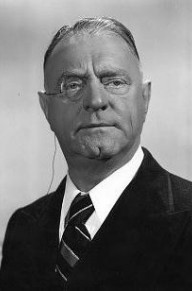
西戈·鲁曼
性别:男
星座:天秤座
出生地:德国,汉堡
职业:演员
Born in Hamburg, German Empire, he studied electrical engineering before serving with the Imperial German Army during World War I. After his emigration to the United States in 1924, his acting career blossomed. Befriending playwright George S. Kaufman and theater critic Alexander Woollcott, he enjoyed success in many Broadway productions. Ruman made his film debut in Lucky Boy (1929).[1] He became a favorite of the Marx Brothers, appearing in A Night at the Opera, A Day at the Races, and A Night in Casablanca. His German accent and large stature kept him busy during World War II, playing sinister Nazi characters in a series of wartime thrillers. During this period, he also appeared in several films by director Ernst Lubitsch, a fellow German émigré, including Ninotchka (1939) and To Be or Not to Be (1942). He played the role of Professor Herman Von Reiter in Shining Victory (1941), an adaptation of an A. J. Cronin play. Ruman continued his trend of playing over-the-top German characters later in his career for Lubitsch's protege Billy Wilder, appearing in Wilder's films The Emperor Waltz (1948), Stalag 17 (1953), and The Fortune Cookie (1966). According to Leonard Maltin in the DVD commentary for A Night at the Opera, Ruman had modified his screen name from Siegfried Rumann to Sig Ruman in an attempt to make it a little less German-sounding, to lessen potential anti-German prejudice against him. Despite declining health during the 1950s and 1960s, Ruman continued to find work, making many guest appearances on television.







